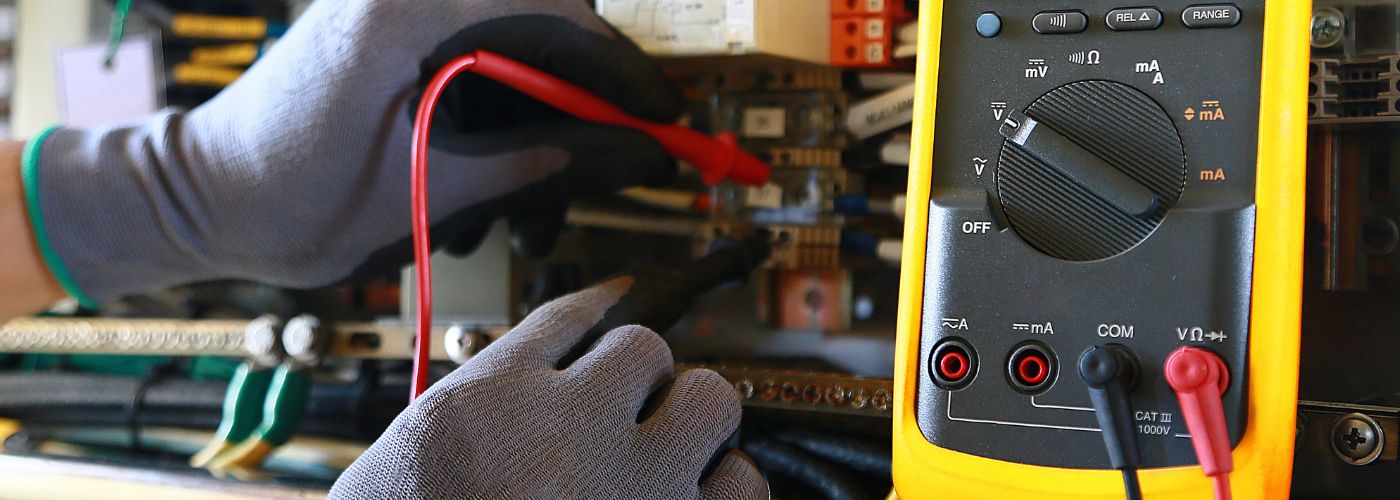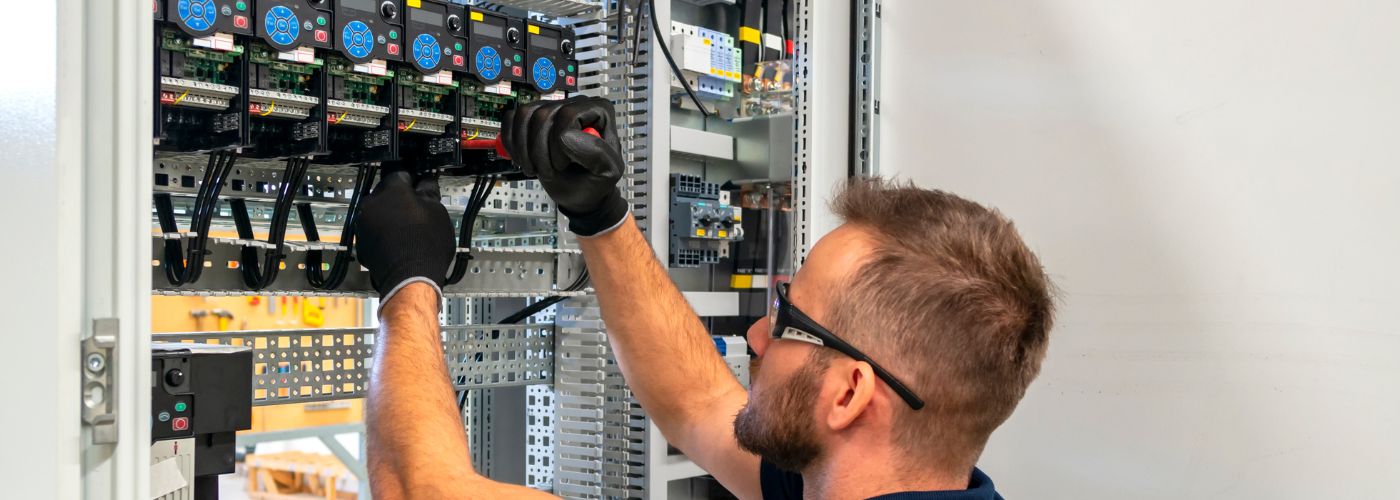Are you wondering when it’s time to replace your electrical panel? The electrical panel, also known as the circuit breaker box or fuse box, is a critical component of your home’s electrical system. It distributes electricity throughout your house and protects your home from electrical overloads.
In this post, we’ll explore when you should consider replacing your panel, how long the process takes, and whether a homeowner can tackle this project!
Replacing An Electrical Panel
First, let’s briefly understand the role of an electrical panel in your home. The electrical panel is like the control center of your electrical system. It receives electricity from your utility provider and distributes it to various circuits within your home. Each circuit is protected by a circuit breaker, which trips if there’s an electrical overload, preventing damage or fires.
Over time, panels can become outdated or inadequate to handle the electrical demands of modern households. Here’s what you need to know about electrical panel replacement:
When Should I Replace My Electrical Panel?
Knowing when to replace your electrical panel is crucial for ensuring your home’s safety and efficiency. Here are some signs that it might be time for an upgrade:
Frequent Circuit Breaker Tripping: If your circuit breakers trip often, it’s a clear indicator that your panel may not be able to handle the electrical load. This can be especially concerning if it happens with normal household activities.
Old Age: Electrical panels have a lifespan, and if yours is more than 20-30 years old, it’s a good idea to have it inspected by a professional. Older panels may not meet current safety standards or provide the capacity needed for modern appliances.
Flickering Lights: If your lights flicker or dim when you use certain appliances or turn on multiple devices simultaneously, your panel may be struggling to supply adequate power.
Charred or Burn Marks: Visible signs of damage, such as charred or burnt areas around the panel, are serious warning signs. These indicate overheating and potential fire hazards.
Lack of Space: If your electrical panel is running out of space for additional circuits, you might need to upgrade to a larger panel or consider adding a subpanel to accommodate new electrical needs.
How Long Does It Take To Replace An Electrical Panel?
As with more complex projects like pool electrical services, the duration of a panel replacement project depends on several factors, including the complexity of your electrical system and the condition of the existing panel. On average, a professional electrician can complete the replacement in one to two days.
Here’s a rough breakdown of the process:
Assessment: The electrician will assess your current electrical panel, determine your electrical needs, and discuss any upgrades or changes you require.
Panel Selection: You’ll work with the electrician to choose the right panel for your needs. This might include deciding on the panel’s size, capacity, and any additional features.
Permits and Inspection: The electrician will obtain the necessary permits and schedule an inspection to ensure compliance with local building codes.
Shut Down and Disconnect: On the day of the replacement, power to your home will be temporarily disconnected to ensure safety. The old panel is then disconnected and removed.
Installation: The new electrical panel is installed, and circuits are carefully connected. Any necessary wiring upgrades are also performed at this stage.
Testing: After the installation, the electrician will thoroughly test the panel and circuits to ensure they are functioning correctly and safely.
Final Inspection: The local building inspector will review the work and, if everything meets code, power will be restored to your home.
Can A Homeowner Replace An Electrical Panel?
While many DIY projects like light switch repair are suitable for homeowners, replacing electrical panels is not one of them. Electrical work can be extremely dangerous if not done correctly, and it requires a deep understanding of electrical systems, local codes, and safety protocols.
In most jurisdictions, replacing panels is a job that should only be carried out by a licensed and experienced electrician. This ensures that the work is done safely, up to code, and that you won’t run into problems down the road.
Knowing when to replace your panel is essential for maintaining the safety and functionality of your home. If you notice any of the warning signs mentioned earlier, or if your panel is simply getting old, it’s wise to consult a professional electrician for an assessment. Remember, safety should always be a top priority when it comes to your home’s electrical system!


